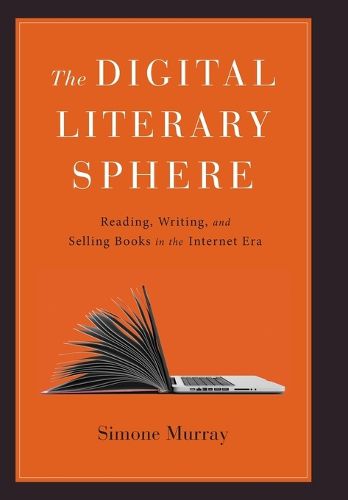Readings Newsletter
Become a Readings Member to make your shopping experience even easier.
Sign in or sign up for free!
You’re not far away from qualifying for FREE standard shipping within Australia
You’ve qualified for FREE standard shipping within Australia
The cart is loading…






How has the Internet changed literary culture?
2nd Place, N. Katherine Hayles Award for Criticism of Electronic Literature by The Electronic Literature Organization
Reports of the book’s death have been greatly exaggerated. Books are flourishing in the Internet era-widely discussed and reviewed in online readers’ forums and publicized through book trailers and author blog tours. But over the past twenty-five years, digital media platforms have undeniably transformed book culture. Since Amazon’s founding in 1994, the whole way in which books are created, marketed, publicized, sold, reviewed, showcased, consumed, and commented upon has changed dramatically. The digital literary sphere is no mere appendage to the world of print-it is where literary reputations are made, movements are born, and readers passionately engage with their favorite works and authors.
In The Digital Literary Sphere, Simone Murray considers the contemporary book world from multiple viewpoints. By examining reader engagement with the online personas of Margaret Atwood, John Green, Gary Shteyngart, David Foster Wallace, Karl Ove Knausgaard, and even Jonathan Franzen, among others, Murray reveals the dynamic interrelationship of print and digital technologies.
Drawing on approaches from literary studies, media and cultural studies, book history, cultural policy, and the digital humanities, this book asks: What is the significance of authors communicating directly to readers via social media? How does digital media reframe the live author-reader encounter? And does the growing army of reader-reviewers signal an overdue democratizing of literary culture or the atomizing of cultural authority? In exploring these questions, The Digital Literary Sphere takes stock of epochal changes in the book industry while probing books’ and digital media’s complex contemporary coexistence.
$9.00 standard shipping within Australia
FREE standard shipping within Australia for orders over $100.00
Express & International shipping calculated at checkout
How has the Internet changed literary culture?
2nd Place, N. Katherine Hayles Award for Criticism of Electronic Literature by The Electronic Literature Organization
Reports of the book’s death have been greatly exaggerated. Books are flourishing in the Internet era-widely discussed and reviewed in online readers’ forums and publicized through book trailers and author blog tours. But over the past twenty-five years, digital media platforms have undeniably transformed book culture. Since Amazon’s founding in 1994, the whole way in which books are created, marketed, publicized, sold, reviewed, showcased, consumed, and commented upon has changed dramatically. The digital literary sphere is no mere appendage to the world of print-it is where literary reputations are made, movements are born, and readers passionately engage with their favorite works and authors.
In The Digital Literary Sphere, Simone Murray considers the contemporary book world from multiple viewpoints. By examining reader engagement with the online personas of Margaret Atwood, John Green, Gary Shteyngart, David Foster Wallace, Karl Ove Knausgaard, and even Jonathan Franzen, among others, Murray reveals the dynamic interrelationship of print and digital technologies.
Drawing on approaches from literary studies, media and cultural studies, book history, cultural policy, and the digital humanities, this book asks: What is the significance of authors communicating directly to readers via social media? How does digital media reframe the live author-reader encounter? And does the growing army of reader-reviewers signal an overdue democratizing of literary culture or the atomizing of cultural authority? In exploring these questions, The Digital Literary Sphere takes stock of epochal changes in the book industry while probing books’ and digital media’s complex contemporary coexistence.